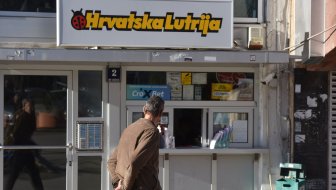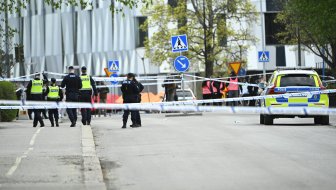Croatian Prime Minister Zoran Milanovic said in the Vatican on Monday afternoon that his talks with Pope Benedict XVI and Cardinal Tarcisio Bertone, Secretary of State and Camerlengo of the Holy Roman Church, had not tackled the possibility of revising the treaty between Croatia and the Vatican, and the premier stressed that he held that the treaty must be honoured.
"We did not talk about the termination or the revision (of the treaties)", Milanovic told reporters in front of the Croatian embassy in the Vatican, after his meetings with the Pontiff and Cardinal Bertone.
The premier recalled that Croatia allocated certain budget funds annually to the Catholic Church, in compliance with the treaty.
"What is signed, is signed. Croatia mainly complies with that, we have some arrears dating back to 10 years ago, but on the main part behaves in a fair manner", Milanovic said.
He said that his 30-minute-long talks with the Pope focused on different topics, including the status of Christians in Syria, the global situation, the economic crisis as well as the situation in Croatia and its neighbourhood, and added that they had exchanged gifts.
Milanovic said the Holy See deemed the Dajla case to be a very important issue.
As far as the property dispute in the parish of Dajla is concerned, Milanovic believes that it is was clear that "the property is on Croatian territory and will be subject to the Croatian state and local regulations and laws." He said that the case had been charged "with false emotions" in Croatia.
The Vatican deems the matter to be important "and we are working to finding a fair solution", the premier said adding that the case would not in any way define or burden relations between Croatia and the Holy See.
The Dajla case refers to the dispute between the Porec-Pula Diocese and the Italian Benedictine Abbey of Praglia over church land in the Dajla parish in Istria.
In August 2011 after the case came in the limelight, the Croatian Bishops' Conference (HBK) stated that it regarded the dispute between the Porec-Pula Diocese and the Italian Benedictine Abbey of Praglia over church land in the Dajla parish in Istria as a church matter, and that the bishops remained firm in their respect for the decisions of the Holy Father.
According to the bishops' statement, the Italian Benedictines' property became the property of the Dajla parish in the Porec-Pula Diocese in 1999. After that, the Diocese and the Abbey of Praglia sought the best solution based on canon law to ensure that what was returned was divided equitably. Without wishing to challenge the treaties of Osimo and Rome, the two church entities were trying to find an equitable settlement while at the same looking after their own interests. After the Congregation for Bishops and the Congregation for Institutes of Consecrated Life and Societies of Apostolic Life made their contribution to the settlement of the dispute, the Porec-Pula Diocese and the Benedictine Abbey of Praglia reached an agreement to divide the property in half. The agreement was signed by the interested parties in Rome on 17 May 2006. Since the interested parties were unable to effect the division, in 2008 the Holy Father appointed a commission of cardinals to ensure the implementation of the agreement. In November 2010, the commission presented the results of its work to the Holy Father, based on which he made his decision, the statement said.
A few days after the Croatian Bishops' statement, that is on 10 August 2011, the Croatian Justice Ministry declared as null and void a decision by Istria County whereby land on the Church and civil areas of the Benedictine monastery Dajla was given to the Dajla parish, and thus enabled the Republic of Croatia to be entered in land books as the owner of the said real estate. The ministry said that, in the process of administrative monitoring, it gathered documents in the cases of restitution of property to the Dajla parish regarding compensation for the confiscated property in accordance with the law on compensation for property confiscated during the former Yugoslav communist regime.
After reviewing and establishing facts, the ministry adopted a decision on declaring as null and void decisions by Istria County and its office for property-rights relations from 1997, 1998, 1999, 2000, 2001 and 2002 whereby agricultural and building land in Dajla is given to the Dajla parish, namely the parish was given the right to seek compensation. The ministry said that its decision annulled all legal effects of the said decisions and would enable Croatia to be entered in the land books as the owner of the said real estate.



































